The US government is willing to assist applicants with low-incomes and students by offering free government laptops to deserving applicants. These laptops can be really helpful because they let people access the internet, do schoolwork, and even apply for jobs. For many families who can’t afford to buy a computer, this support is inevitable. With a laptop, kids can do their homework and learn online, which is especially important during the pandemic when schools are closed.
Seniors can use the laptop to search for jobs, communicate with potential employers and write resumes. By providing free tablets and laptops, the government is trying bring relatives closer and give everyone a fair chance to succeed, no matter how much money they have.

In this post, I will guide you about free laptop government program, top providers of laptops, eligibility criteria, documentation required and how to apply for laptop online.
What is Free Government Laptop Program?
The Free Government Laptop Program is a program run by the US government that gives laptops to people who have low incomes or who are in need. These laptops are given out to help people who can’t afford to buy their own computers.
The program is ensuring that all citizens have access to technology, regardless of how much money they have. With a laptop, people can do things like schoolwork, job searches, and stay connected with others online.
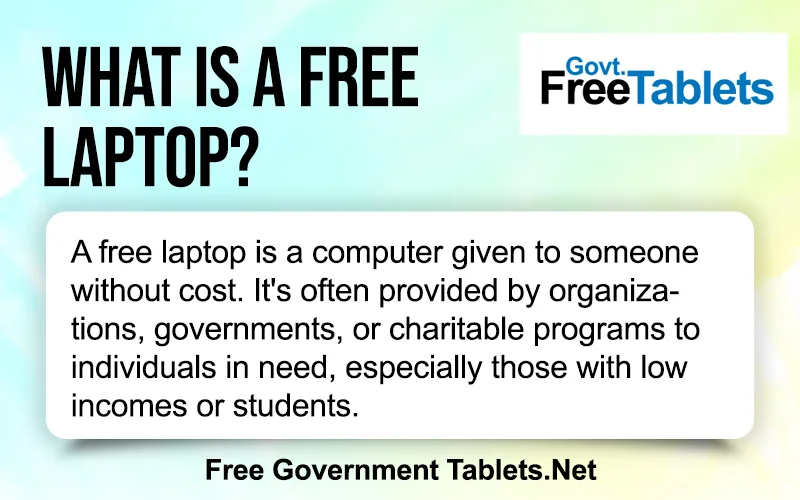
This program is really helpful for families who might not be able to afford a computer otherwise. It helps bridge the gap between those who have access to technology and those who don’t, making sure everyone has a chance to succeed in the digital world.
Government Mission Statement
The government wants to give laptops to people who can’t buy them. This helps everyone have the same chances with technology. It means people can do schoolwork, find jobs, and talk with others online. This helps make society fairer and lets everyone join in.
How do I get Free Laptop?
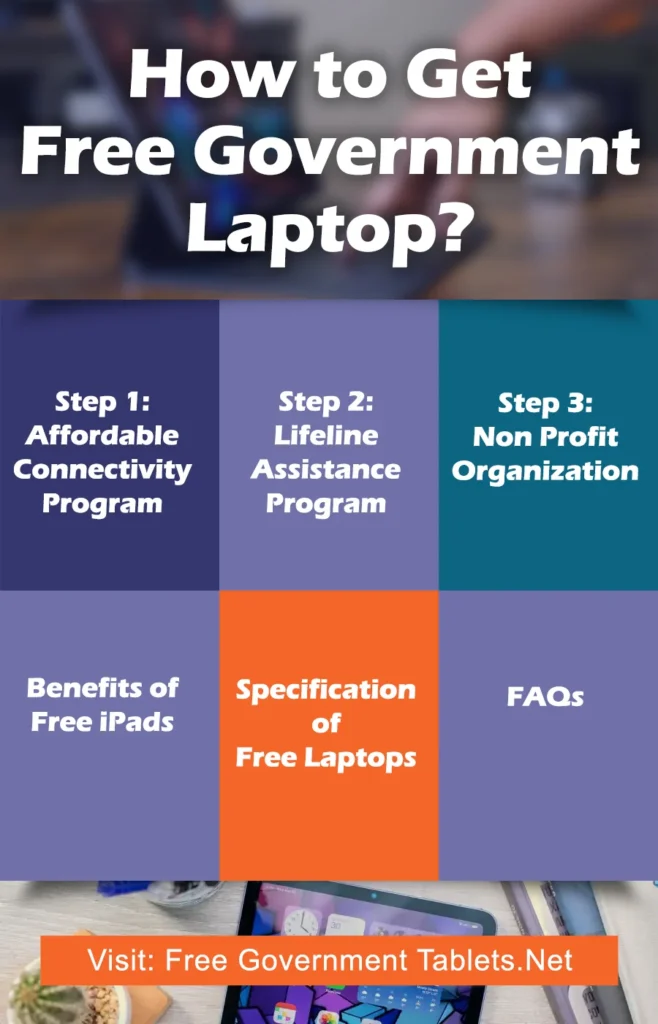
1. Affordable Connectivity Program (ACP)
The Affordable Connectivity Program (ACP) helps families who don’t have excessive monetary resources afford internet and gadgets like computers or tablets. They don’t give out free government laptops themselves, but some companies in the ACP, like Spectrum Wireless, give you a lower price on laptops if you get their internet service. So, if you need both internet and a laptop, this program might help you save money on both.
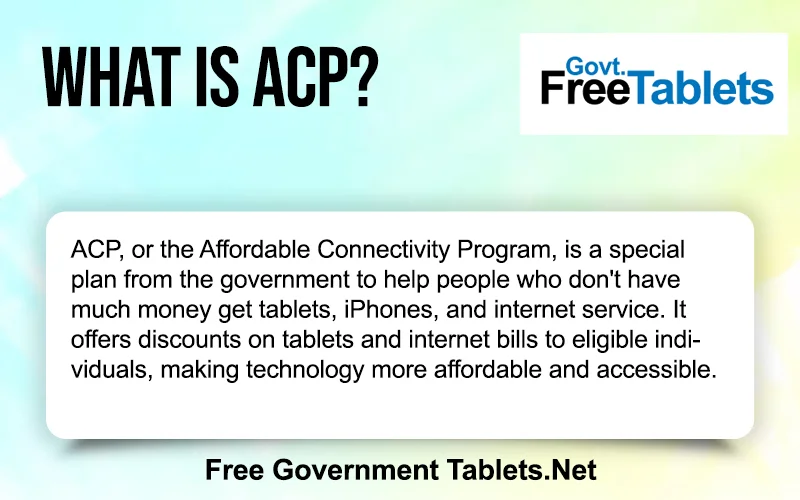
ACP gives out laptops by establishing partnership with some internet companies that are part of the ACP. They shall give you a discount on laptops or tablets if you join their ACP-eligible internet plans. But firstly, you need to meet their eligibility requirements:
Eligibility Requirements of ACP Free Government Laptop Program
To qualify for the ACP program:
- Your household income should be at or below 200% of the Federal Poverty Level (FPL), or
- You should be part of certain government assistance programs like Medicaid. You can check if you’re eligible on the FCC’s ACP website.
Laptops and Discounts
- Not all ACP providers give discounts on laptops. You should ask your current internet provider or look into companies like Spectrum Wireless, which offers up to a $99 discount on laptops or tablets when you pay more than $10 but less than $50 towards the price.
- Other providers might have similar offers or bundle deals with discounted devices. You’ll need to check with each provider for details.
- The number of discounted laptops available is limited and depends on how much money is available in the program.
- Even with concession, there might still be a cost for you to bear towards the laptop.
- Each household can only get one discount for a device through the ACP.
Watch out for scams that promise laptops through the ACP program. Your local library or community centre might also have programs where you can borrow laptops or use computers.
For the most accurate information about laptop discounts and eligibility, it’s safest to contact your chosen ACP provider directly. They can inform you about current offers, how to apply, and other important details.
2. Lifeline Assistance Program

Lifeline is a program that assists families with limited finances in getting phone service. It’s similar to getting a discount on your phone bill. Some companies participating in Lifeline might also provide you with a nice offer on laptops or tablets if you sign up for their service.
So, if you’re in need of both a phone and a laptop or tablet, Lifeline could help you acquire them at a reduced cost.
3. Non-profit organizations
These non-profit organizations (NPOs) play a role in providing access to technology, similar to the idea of free government laptops. Here’s how they relate:
PCs for People
This organization purchases donated PCs and provides low-incomes at low cost or even free laptop for low income who qualify based on income or participation in specific programs like SNAP or Medicaid. They act like a source for free or low-cost laptops, similar to what a government program might offer.
On It Foundation

They provide free laptops for students at public schools who qualify for free or reduced-cost lunch. While not directly related to government programs, they offer a similar service by providing laptops to students in need.
Human I-T
This organization repairs damaged computers and donates them to low-income applicants. Although not specifically government-funded, they contribute to the same goal of providing technology access to those who might not afford it, similar to the purpose of free laptop government programs.
Features and Specifications of Free Government Laptops
- Processor: The brain of the laptop, like the engine of a car. It helps do tasks like opening programs and browsing the internet. Government laptops usually have basic processors to handle everyday jobs.
- Memory (RAM): Think of RAM like short-term memory in a person’s brain. It helps the laptop run smoothly when you’re doing multiple things at once, like having several tabs open in a web browser.
- Storage: This is like the laptop’s filing cabinet where it keeps all its files, such as documents, pictures, and apps. Free government laptops might have smaller storage space, so you may need to manage your files carefully.
- Operating System (OS): This is the software that makes the laptop work, like Windows or Chrome OS. Government laptops come with a basic version of the operating system to get you started.
- Display: The screen where you see everything. Government laptops usually have standard-sized screens with clear visuals, making it easy to read and watch videos.
- Connectivity: This means how the laptop connects to the internet and other devices, like Wi-Fi and Bluetooth. It’s important for staying connected and using wireless accessories.
- Ports: These are the slots where you plug in things like USB drives, headphones, or a charger. Government laptops have essential ports for connecting to different devices.
- Battery Life: How long the laptop can run on a single charge. Government laptops usually have decent battery life, so you can use them for a few hours without needing to plug in.
- Weight and Size: Government laptops are made to be flexible and movable, so its comfortable for you to carry them around.
- Durability: This refers to how well the laptop can handle everyday use. Some government laptops may have features like spill-resistant keyboards or sturdy construction to make them last longer.
Benefits of Free Laptops
Low-Income Individuals:
- Provides access to essential online resources, job opportunities, and educational materials.
- Aids in maintaining connections with family and friends, reducing social isolation.
College Students:
- Facilitates research, assignments, and online learning, contributing to academic success.
- Enables access to educational software, textbooks, and resources required for coursework.
Seniors:
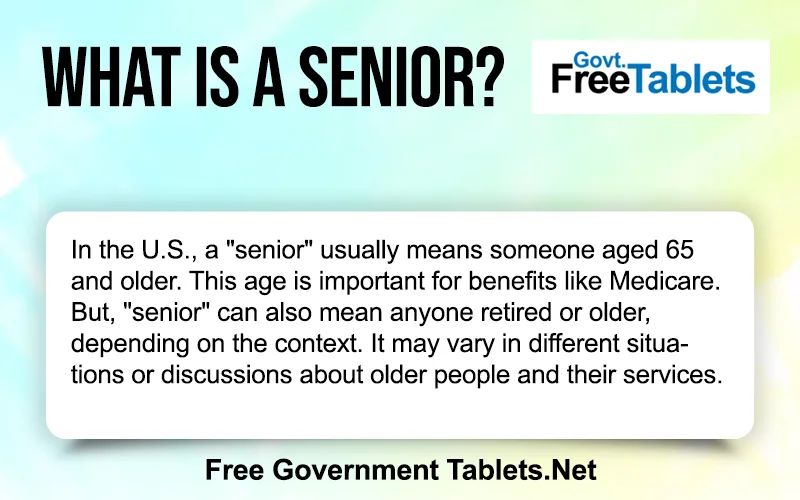
- Offers access to telehealth services, enabling seniors to take guidance from other providers at living place.
- Facilitates communication with loved ones through video calls, reducing feelings of loneliness.
Adults:
- Enables job searches, online applications, and career development activities.
- Supports skill development through online courses and training programs.
Students:
- Provides necessary tools for completing homework, research projects, and collaborative assignments.
- Enhances digital literacy skills and prepares students for future academic and career endeavors.
Senior Citizens:
- Promotes social engagement and connectivity with peers and family members.
- Provides access to entertainment, news, and information tailored to senior interests.
Veterans:
- Supports access to veteran services, benefits information, and healthcare resources.
- Helps in connecting with fellow veterans and support networks online.
Disabled Children:
- Facilitates personalized learning experiences and access to educational software tailored to individual needs.
- Supports communication and social interaction through assistive technology and accessible resources.
Homeschoolers:
- Offers curriculum resources, educational software, and tools for homeschooling activities.
- Enables collaboration and communication with other homeschooling families and educators.
Schools:
- Bridges the digital divide, ensuring all students have equitable access to technology for learning.
- Supports teachers in delivering interactive lessons and engaging students through digital resources.
Deaf and Hard of Hearing Individuals:
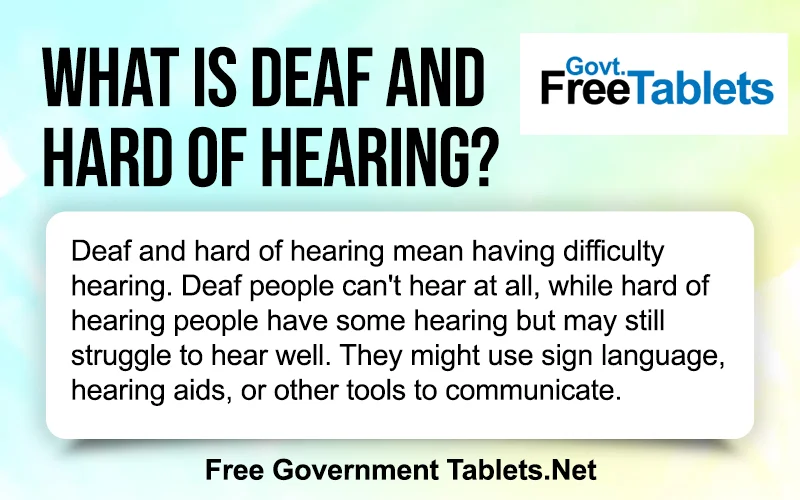
- Facilitates communication through video calls, messaging apps, and sign language resources.
- Provides access to captioned videos, online courses, and study books as per their needs.
FAQs on Laptops
How can you get a free laptop?
To get a free government laptop, first, check if there are any programs in your area that give them away. You might need to meet certain rules, like having low income or being part of specific government help programs. You can ask your local government or look online for details on how to sign up for these programs.
Are there free laptops for students?
Yes, there are special programs that give laptops to students who need them for school. You can check with your school or local organizations to find out more.
Can I get a laptop with Medicaid?
Some programs offer laptops to people who have Medicaid, a health insurance program for those with low incomes. You should see if you qualify for such programs.
How can I apply for a laptop online?
You can apply for a laptop online by visiting the websites of organizations that offer them. They usually have a form or application you can fill out right on their website.
Is there a free computer for low-income families?
Yes, there are programs that provide free government computers to families with low incomes to help them out. You can look into these programs to see if you qualify.
Can seniors get computer assistance for free?
Yes, seniors can get free help with computers from places like senior centers, libraries, or non-profit organizations that help seniors. They can show you how to use computers and answer your questions.
Conclusion
In the United States, giving out free government laptops is a big help for people who don’t have much money. These laptops are more than just computers. They connect people to the internet, help with schoolwork, and let them look for jobs.
For families who can’t afford to purchase a laptop or PC, this support is really important. It ensures that everyone has an equal opportunity to succeed. With programs like the Affordable Connectivity Program and Lifeline Assistance Program, along with help from non-profit organizations, more people can access technology and improve their lives.
